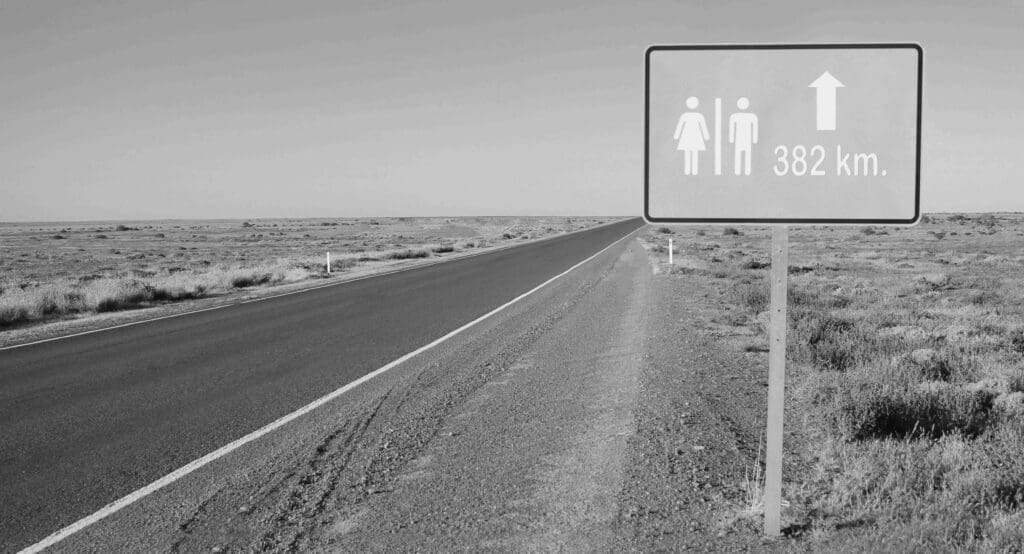
Transit:
The main purpose of this page is to provide advice to help people understand and support healthy digestion and bowel transit.
Digestion and bowel transit are more important than we often realise. Typically, we should go to the toilet (have a bowel movement) once a day.
Transit is a complex process that requires balance. Any change in our diet can affect everything; Our microbiota, transit, nutrient absorption, and hydration levels.
Julia Enders explains in her book Gut: The Inside Story of Our Body’s Most Underrated Organ that we should not worry too much. If you are the type of person who goes to the toilet once a day, you fall into the category with a reduced risk of gut-related illnesses.
She also explains that when we go to the toilet, there should theoretically be no need to force; It should come naturally. Some books and websites highlight the importance of dedicating a specific time each day to go to the toilet. We have to go dedicate moment, but no need to force.
This helps support our digestive rhythm and internal body clock. You may also come across information suggesting that we should theoretically pass about 29 cm of stool per day (roughly the length of the final part of the large intestine).
- Not going to the toilet for three days means you are constipated.
- Going more than twice a day may indicate diarrhoea.
When diarrhoea is recurrent and the cause is unknown, it is important to consult a doctor, as it can become dangerous. Frequent diarrhoea can lead to serious health problems.
Vomiting is another symptom that should be checked by a doctor, especially if it occurs without a clear cause. If it happens too often, it can be dangerous and may lead health issue and complication).
Food Helping Transit:
The main type of food recommended to support bowel transit is fibre.
Fibre helps regulate bowel movements naturally and is abundant in fruits and vegetables. When aiming for your “Five a day“, remember that fruits can be very sweet, so it’s best to include more vegetables than fruits. Cabbage, onion, and garlic are sometimes less well tolerated, so you may need to adjust your diet accordingly. You can still include them, for example, occasionally eating them with a larger portion of rice.
A second important factor is hydration.
Drinking around 2 litres of water each day can naturally support healthy transit.
If transit becomes sluggish, certain foods can help stimulate digestion.
As previously explain, Increasing Fiber, Cabbage, may increase bowel movements.
Something good to know is Eating two kiwis, for instance, can be very effective to go to the toilette quickly (ConsoGlobe).
We generally recommend dried plums (which are less acidic than kiwis). It is unclear why prunes are more commonly used than kiwis for this purpose, but their lower acidity and sweeter taste may be factors. Try not to rely on this daily, and remember that eating sweet foods in the morning may cause a blood sugar spike after fasting overnight.
Coffee, chicory, and tea are also known to help accelerate bowel transit.
Food Reducing Transit:
Foods that help slow down transit include natural rice (white or semi-whole grain), which is often recommended. Bananas and dates can also naturally slow intestinal transit.
Be careful with dates: They belong to the family of dried fruits and are very sweet, with a high glycaemic index.
The most important thing is to find a good balance, while also remembering to try to increase vegetable consumption (Link)
Gut Protection:
When we have diarrhoea, it is recommended to avoid eating too many acidic foods and too much fibre, as these can further irritate the gut.
We should also avoid foods that trigger intolerances, as well as heavy or fatty foods, in order to protect liver function. The liver plays an important detoxifying role, helping the body defend itself against infections.
When we are constipated, the gut barrier is not the main concern; Instead, we need to support liver function and encourage bowel movements through regular visits to the toilet.
Salt is also known to slow down transit. It can be present in foods; Such as seafood; Without us realising, and it may contribute to dehydration.
Psyllium:
Psyllium is an important supplement to mention when discussing digestive transit.
It is well known for helping to slow down transit in cases of diarrhoea, while also facilitating transit when someone is constipated.
Psyllium originates from Asian countries such as India and Pakistan, where it has been used for centuries for its beneficial effects on the gut barrier. It is also commonly recommended for people with Crohn’s disease.
One possible side effect of psyllium is that it may reduce the absorption of nutrients or medications. If you are taking medication, it is advisable to wait 2–3 hours after taking psyllium before taking your medicine, to allow for better absorption.
As always, it is best to discuss this with your doctor.
Salt:
As previously mentioned, excess salt is not good for health; it can slowly damage the kidneys. Salt, like sugar, is considered one of the worst ingredients in our diet, as it can negatively impact our health. It increases dehydration and hypertension and can even lead to kidney failure.
The kidneys can be compared to delicate lace, gradually being damaged over time by unhealthy habits.
The best way to prevent this damage is to maintain good hydration levels and follow a healthy diet and lifestyle.
We need to monitor our salt intake carefully. The recommended limit is a maximum of 3 grams per day. This limit can easily be exceeded, as salt enhances flavour and is widely used for food preservation. Ultra-processed foods often contain high amounts of salt, which is why it is recommended to buy raw ingredients and prepare meals ourselves.
As previously mentioned, if we increase our consumption of fish and/or crustaceans, we should also be careful, as this can unintentionally raise our salt intake without us even realising it.

A way to verify consumption of Salt is to Scan all random product we are eating to reverify some time to time if the amount of Salt level is correct ( Showing Green / Red Status ). More information about Yuka Mobile Scan App on (Link) Following also Yuka Website Link : https://yuka.io/en/

Comments are closed